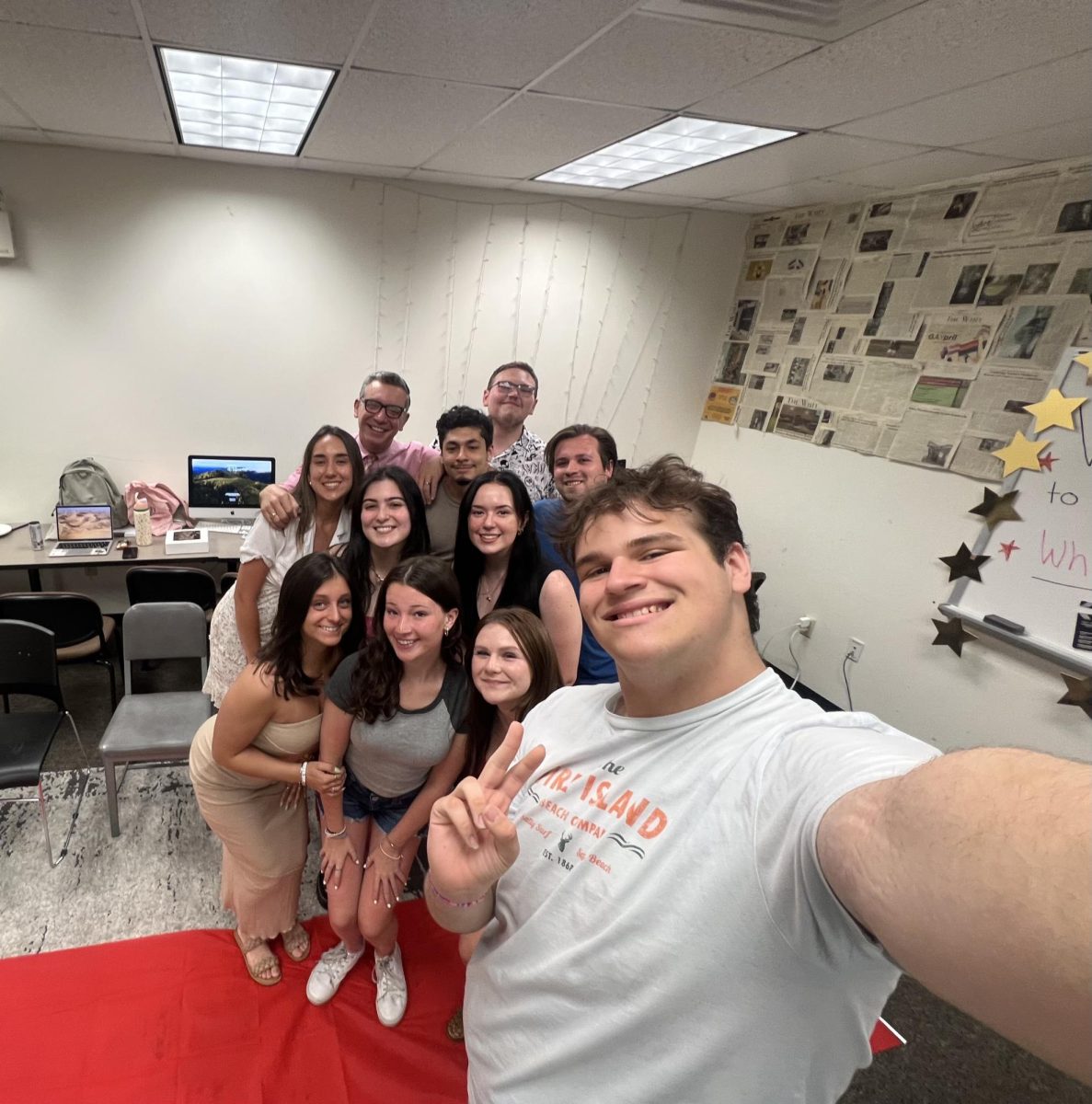One of the most unique parts of my Rowan experience has been spending four years on The Whit – with three years as a full editor and one as an editor-in-chief – while never formally studying journalism. It’s true; I’ve only taken one course in the department, and it was a practicum course open to all majors interested in climate science. In fact, I’m slated to graduate in May with a Bachelor of Science in geology and have received full-funded offers to grad school programs, in which I hope to eventually earn my Ph.D. as a career geoscience researcher.
Some people may say that this is the farthest path from journalism possible, or that I seem like an odd fit for a campus newsroom. After all, what does a Ph.D. scientist need with newsroom experience?
I don’t find my path odd, though. I think that more students, especially those in non-media disciplines, should embrace being part of student publications. In fact, I think that my experience working on The Whit is what has made me a more competitive applicant for grad school and jobs – and that I’m a much better scientist for it.
The world is full of STEM undergrads just as qualified, competent and enthusiastic toward pursuing a research career as myself. Though many STEM students could probably stand to improve their writing skills, having participated in The Whit doesn’t just show that I can write well. Putting together a newspaper every week for the past three years has also demonstrated that I can take initiative, collaborate, manage projects and follow through with administrative tasks. While not seeming to have much to do with science at all, these mirror many of the actual daily demands of doing research that will end up as a thesis, dissertation or publication.
More than one employer has told me that my editor background has been instrumental in why they hired me – and none of these jobs have been in writing, editing or publishing. I currently work as a tutor for middle school students. The primary family with whom I work has said that the kind of leadership necessary to run a newsroom seemed applicable to the kind of leadership necessary to convince pre-teens to do their homework. (For the sake of all my current and former staff members on The Whit, I will neither confirm nor deny this.) I’ve also landed job offers where my Adobe software and graphics skills, which I use regularly on The Whit, were my selling points.
The Whit has also been there whenever I’ve needed it as a platform. It’s allowed me to speak on issues, both on campus and on larger scales, and make those ideas heard. No other organization, anywhere, has empowered me in the same way.
Most importantly, working on student publications has been personally fulfilling. I get to work with some of the smartest and most talented people on campus, and I get to learn so much about our community. There are days or weeks when classwork and thinking about the future stresses me out. Having a supportive group with whom I perform high-quality work always makes me feel better. The Whit has allowed me to be part of something bigger than myself, and I would do it all again even if it didn’t help my professional science career.
The most unique part of my experience on The Whit, though, has not been that I am the only STEM major there.
The most unique part of my campus newspaper experience is that I knew I would work on The Whit from the moment I decided to go to Rowan.
Most editors end up here following circuitous paths to discovering loves for journalism, writing, editing and publishing. It’s rare that freshmen know that they want to contribute to the production side of a campus publication, and it’s even rarer that they act upon that desire and approach the editorial staff. My four years spent at The Whit, longer than anyone else there, are really what set me apart. The bravery I felt as a freshman, to approach the staff and ask for a reporting assignment, is not common at all.
But imagine how many more amazing editors and writers there could be if that bravery was more common.
To all Rowan students, no matter who you are, no matter what your major is, no matter how old you are – campus publications are for you, if you want them to be. I promise. It’s been the best and most rewarding experience I could have asked for from my years as an undergrad.
The Whit is waiting for you, too.
For comments/questions about this story, email [email protected] or tweet @TheWhitOnline.

























































































































































!["Working with [Dr. Lynch] is always a learning experience for me. She is a treasure,” said Thomas. - Staff Writer / Kacie Scibilia](https://thewhitonline.com/wp-content/uploads/2025/04/choir-1-1200x694.jpg)










































